
Jerry eBooks
No copyright  2017 by Jerry eBooks
2017 by Jerry eBooks
No rights reserved. All parts of this book may be reproduced in any form and by any means for any purpose without any prior written consent of anyone.


ALL RIGHTS RESERVED
INCLUDING THE RIGHT OF REPRODUCTION
IN WHOLE OR IN ANY FORM
COPYRIGHT, 1943 BY JOHN MORRILL AND W. THORNTON MARTIN
PUBLISHED BY SIMON AND SCHUSTER, INC.
ROCKEFELLER CENTER
1230 SIXTH AVENUE
NEW YORK, N.Y.
Maps by Frank Lieberman
MANUFACTURED IN THE UNITED STATES OF AMERICA
AMERICAN BOOK-STRATFORD PRESS, INC., NEW YORK
For the Men of the U.S. Minesweeper Quail
INNER SANCTUM
BOOKS FOR VICTORY
REPORT FROM TOKYO
by Joseph C. Grew
MISSION TO MOSCOW
by Joseph E. Davies
VICTORY THROUGH AIR POWER
by Major Alexander P. de Seversky
THE INNER SANCTUM EDITION OF
WAR AND PEACE
by Leo Tolstoy
SHOOTING THE RUSSIAN WAR
by Margaret Bourke-White
HOW WAR CAME
by Forrest Davis and Ernest K. Lindley
REPORT ON ENGLAND
by Ralph Ingersoll
THIS IS LONDON
by Edward R. Murrow
ALL OUT
by Samuel Grafton
FOREWORD
THE WAR is teaching us that heroes are likely to be simple men, and self-effacing. When, after much questioning, you get them to discuss their part in it, they do it without vainglory or mock modesty, quietly and matter-of-factly. It is only afterward, when you have had time to think about the stories they tell, that those stories take on epic proportions.
Lieutenant Commander Morrill is like that. He has a quick mind, is pleasant company and more than a little shy. Yet there are times when you see in his face a hint of the qualities which brought him through the fiery furnace of Cavite and the slowly closing steel trap that was Bataan and Corregidor, and in the end carried seventeen men of the mine sweeper Quail through thirty-one days in a thirty-six foot boat navigating Jap-infested seas.
He gives some of the credit for his dramatic and seemingly impossible feat to luck, but most of it to the men who went with him. I didnt carry them with me, he says; they carried me.
Obviously, many things must have carried them through to safety. Among them: courage, ingenuity and adaptability, tenacity of purpose, and teamwork, especially teamwork.
At the end of one of my sessions of note-taking, one in which Morrill had gone even deeper than usual into stark hardship and peril endured, he said to me with utmost sincerity, You fellows who write certainly have a hard job.
I dont see how you stand it. I almost went down for the count.
The feeling that exists between Morrill and the seventeen men who went with him must be seen and heard at first hand to be believed. It cannot be put into words. At various times I have tried to sum it up in terms of a father-and-son relationship, of the feeling of brother for brother, of Damon for seventeen Pythiases, but none of these quite does the trick.
When three of his men appeared on the Kate Smith radio hour with Morrill, I talked to them, hoping to unearth further dope to fatten up Morrills account. I talked to each of the three separately, but invariably, in spite of efforts to get them to talk about themselves, they brought the conversation back to Morrill. The gist of their remarks was, There is nobody like himyou ought to see him in action when the chips are downhe made us feel like we were all working togetherhes a man. You could see that all of them were hoping to serve under him again and would drop whatever they happened to be doing if that opportunity ever came.
Morrill is able to put his feeling into practical form. His share of the royalties of this book will be divided eighteen ways on a share-and-share-alike basis.
As The New York Times puts it: It is theymarines, pilots, soldiers, and sailors of the rankswho tell us more eloquently than all the war speeches what we are fighting for. Because they are there, we all live in the unknown islands of the Pacific. They have become a suburb of all the towns in America.
Morrill is a collaborators dream, talking.
He has a memory as sensitive as a photographic plate. He remembered not only the big, dramatic things, but the small, human things that give a story a heartbeat and make it breathe and live. He was conscious of how things smelled, looked, sounded, and felt, as well as where he had been and what he had done.
He is a natural phrasemaker. Pungent, salty words that crackle with the ring of truth come easily to him. Talking to him, I took down four hundred and fifty pages of longhand notes and stuck faithfully to the spirit and mood of those four hundred and fifty pages. But when, as sometimes happened, those notes seemed only the bare bones of a scene or incident, Morrill sat down to his own typewriter and pecked out page after page of further details that put muscle and flesh and blood into the yarn. He has the gift for short, simple, direct sentences that professional writers strive for all of their lives and often never achieve.
If he hadnt been a naval officer he could have been a bang-up writer of action and adventure prose.
Morrills story is a story of men living and working together in the face of peril.
It is not the story of a one-man show, or even a two- or three-man show. And it is a better and more heartening story thereby.
He was born in Miller, South Dakota, in 1903, was raised in Minneapolis, and was graduated from the Naval Academy in 1924. A brother of his was a naval aviator in the last war.
In June, 1939, he was transferred to the mine sweeper Quail as commanding officer. On December 10 of last year the Quail was just finishing a Navy Yard overhauling at Cavite in Manila Harbor and testing out its repaired engines when the first wave of Jap planes rocketed overhead.
We just kept right on testing her, Morrill says, also our guns.
For this action Morrill received a citation and the Navy Cross.
The citation reads in part as follows: Lieutenant Commander Morrill, displaying extraordinary courage and determination, proceeded to the dangerous area and towed disabled ships to safety, thereby undoubtedly saving the crews from serious danger and the vessels for further war service.
After the fall of Manila, the Quails primary function was mine sweeping from Corregidor to seaward. Its secondary function was to act as a watchdog and see to it that no Jap boats sneaked up on the Rock. It had a third unofficial function of its own it called bird-dogging Jap planes, which meant trying to catch them over Bataan just as they came up out of a dive after attacking the airfield.
At seven oclock every morning the Japs sent up a scout plane before beginning its days strafing and bombing. Morrill and the other mine sweepers gunning for them called this scout plane Oscar. Each ship got at least one Oscar. After that the Oscars stayed so high the guns couldnt reach them.
Next page
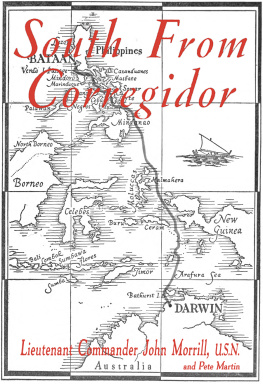

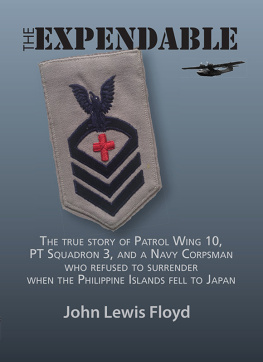
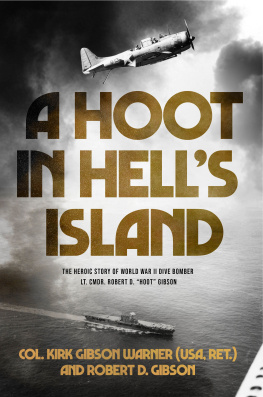
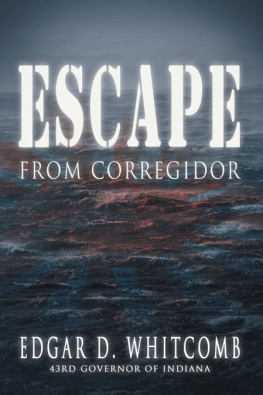
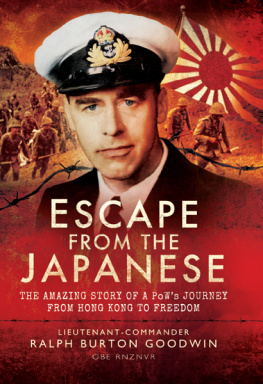
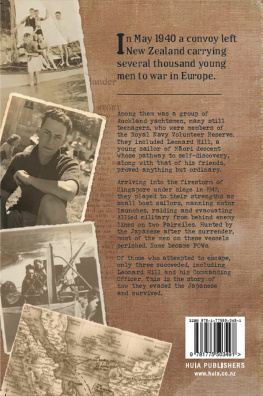
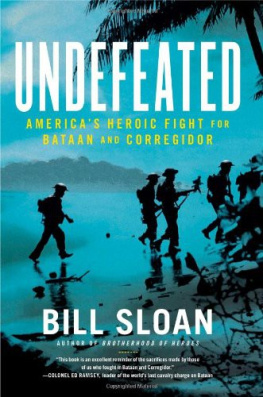

 2017 by Jerry eBooks
2017 by Jerry eBooks

